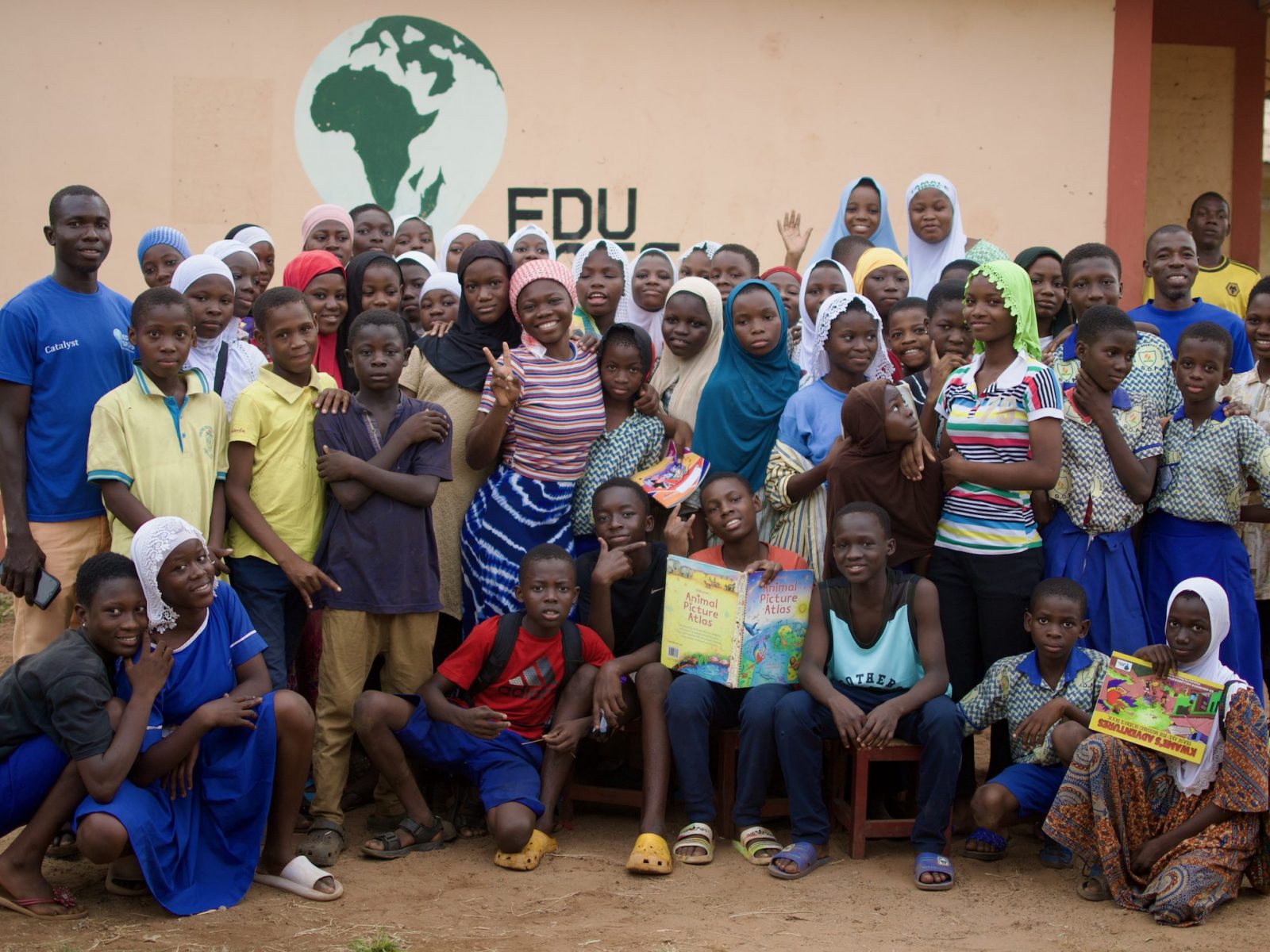Keeping Spots Safe is not just a strand of our work. It is a bold community-rooted movement that is reimagining what safeguarding can mean in schools and communities across Ghana. Instead of treating safety as a policy checklist, it places care, trust and youth voice at the centre of education.
The initiative was born from our Catalyst network, who demanded a deeper response to everyday experiences of harm, silence and exclusion. In contexts where corporal punishment remains widespread and many learners have no safe way to report abuse, Keeping Spots Safe disrupts entrenched norms and creates new spaces for dialogue, empathy and collective responsibility.
How it works
To remain in the EduSpots network, each Spot team commits to embedding safeguarding in their daily practice. With resource kits, storybooks, and session guides, Catalysts and headteachers ensure:
• All Catalysts and headteachers complete Keeping Spots Safe training and understand the safeguarding policy
• Learners take part in creative sessions exploring safety, rights and wellbeing
• Communities host engagement events led by Project Leaders, sparking open conversations with parents, faith leaders and teachers
• Spots display visible safeguarding posters and protocols to reinforce shared values
• Leaders complete a safeguarding quiz and follow-up visits to ensure accountability
What this changes
Keeping Spots Safe is already shifting behaviours and cultures across the network. An independent evaluation in 2025 confirmed:
• Classrooms are changing: teachers are replacing corporal punishment with constructive approaches, strengthening trust with students
• Parents are rethinking discipline: dialogue and care are replacing shouting and violence
• Communities are taking ownership: chiefs and parents are monitoring Spots and championing safeguarding themes in public meetings
• Girls and women are stepping into leadership: Catalysts who once felt silenced are now speaking with confidence in family and community forums
• Learners are finding their voices: children are reporting concerns, advocating for their peers, and leading campaigns against bullying
• Inclusion is growing: Spots are becoming safe spaces for all, with empathy and cultural sensitivity among Catalysts rising by 52%
• Education is becoming more collaborative: nearly seventy per cent of parents now actively engage in their children’s learning compared to thirty per cent at the start
As one headteacher put it: “Schools and headteachers are all learning from EduSpots’ safeguarding activities, and they sometimes call us to come and give them a talk on how to manage certain activities in their schools.”
Towards systems change
Keeping Spots Safe is proving that safeguarding can be redefined through community leadership and youth voice. It is disrupting harmful cycles of violence and silence, while building models of protection that feel authentic, dignified and sustainable. With growing interest from the Ghana Education Service, the initiative is showing how a locally owned, play-based and dialogical model of safeguarding can scale beyond the EduSpots network to reshape systems of protection nationwide.
This video gives you a window into our work with learners, with a training session for Catalysts on facilitating the Keeping Spots Safe session we designed for learners.

 >
>